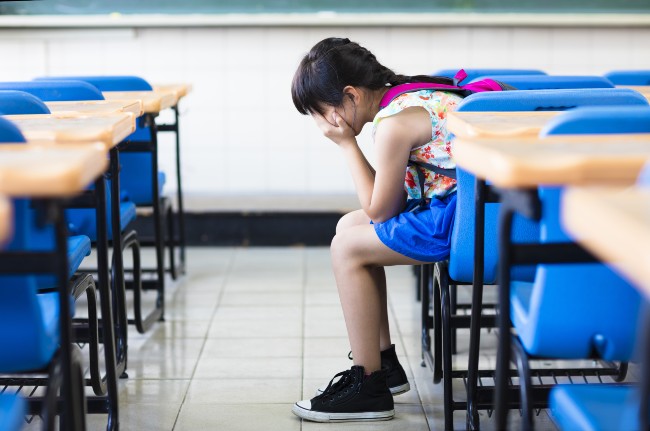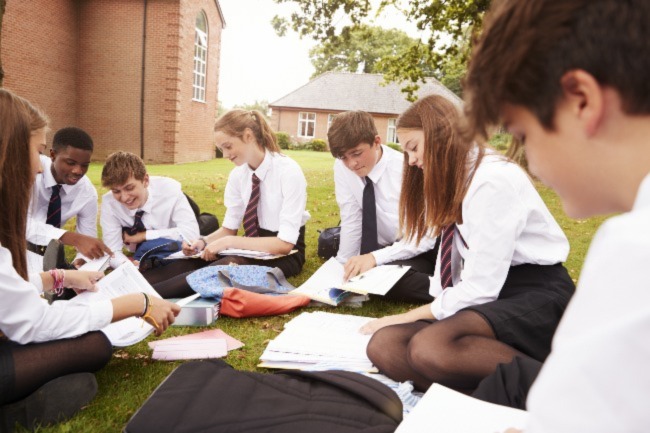Let’s talk about death: All children in England should receive grief education at school

Nearly all British children experience a bereavement by the age of sixteen. An estimated 16,100 children experienced the death of a parent from COVID-19 associated causes between March 2020 and February 2023. Through news and social media, young people are exposed to more conversations about death than ever before.
About the research
Yet, there is currently no requirement for schools in England to provide grief education and research suggests the topics are rarely taught. The statutory guidance for relationships, sex and health education (RSHE) only references bereavement as one of the common ‘adverse childhood experiences’ teachers should consider when they teach. Some schools may choose to use parts of the PSHE Association programme of study, which references ‘death’ or ‘bereavement’ at each stage of education, but these guidelines are not mandatory. Studies suggest that non-statutory topics – especially those that could be sensitive or controversial – are often not taught. This results in a postcode lottery where many children have no classes on this universally relevant topic.
Unresolved grief can have a significant and lasting impact on a child’s wellbeing and has been associated with depression, anxiety and other psychological issues, as well as lower academic outcomes, substance misuse, unemployment, criminal convictions and suicide. It is essential that we equip young people with the knowledge and strategies to cope with grief and support others.
This policy report demonstrates the need to integrate grief education into the statutory curriculum in England, consolidating decades of research and campaigning by charities, families, teachers and academics and reflecting a key recommendation in the UK Commission on Bereavement’s landmark report (2022). The Government have committed to teaching about mental wellbeing at school. Learning about grief, death and loss should be part of this provision.
Key statistics for child bereavement in the UK
- Approximately 1 in 29 school-age children has been bereaved of a parent or sibling, an equivalent of one child in every class.
- A parent of children under 18 dies every 20 minutes. This equates to around 26,900 parents a year, leaving 127 children and young people newly bereaved of a parent each day.
- Many more children have been bereaved of a grandparent, other relative, close friend, or pet.
'It’s kind of ironic because [death]’s the one thing guaranteed in life and yet they won’t teach you about it.'
A bereaved teenager who participated in Childhood Bereavement Network’s ‘Video Talkshops’ Project (2002)
Key Findings
Children who participate in dedicated grief education programmes are more able to discuss grief and less anxious about death. Evidence supports proactive grief education that allows pupils to learn about the topics outside of the context of a traumatic event and return to them in age-appropriate steps as they progress through school. Talking about grief can also help learners who are affected by other types of loss (including parental separation or friendship changes). Grief education would normalise the feelings of grief; help bereaved children understand, express and manage their emotions; and prepare other pupils to support their friends and classmates.
Children and young people are keen to learn about grief, death and loss in school. Nearly all of the 99 bereaved young people who reported to the UK Commission on Bereavement (2022) and the majority of the 31,000 others who participated in the accompanying VotesforSchools (2022) survey supported the idea of school-based grief education. They often recognised that death is a universal experience and that it would be helpful to learn skills to cope and support others even if the topics can be difficult to discuss.
When a 2012 Ofsted survey asked 11–18-year-olds in England ‘which PSHE education topics they would like to learn about in school but currently did not’, ‘coping with bereavement’ was the most popular response. Although it is natural to want to protect children from upsetting truths, even very young children have a concept of death and benefit from talking about it and having their questions answered.
Adults in the UK generally support sensitive grief education. Some research into adults’ perspectives on grief education suggests children should learn about death and bereavement at home. However, the UK Commission on Bereavement (2022) found general support for school-based grief education amongst adults. Furthermore, when the YouGov (2021) ‘Daily Question’ for 16th March 2021 asked ‘do you think the subject of death, and issues around dying, should or should not be taught in schools?’, 67% of 4028 British adults responded ‘it should’, while only 13% responded that ‘it should not’. Even when studies identify the home as the primary place for death education, the participants do not necessarily object to learning about grief, death and loss in the classroom as well. In October 2022, John Adams, President of the National Association of Funeral Directors (NAFD), launched a petition to integrate compulsory death, dying and bereavement content into the curriculum. The petition received over 10,000 signatures and triggered a government response.
Schools in England have access to a wealth of appropriate resources for sensitive teaching. Schools in England already have policies to engage with families about the content of sex education and religious education and offer parents the right to withdraw their child from parts of the curriculum. This approach could be extended to grief education, allowing teachers to communicate what will be covered and parents, carers and young people to ask questions and raise concerns. Sensitive grief education centres on generalised discussions rather than personal experiences, recognises religious and cultural differences, and allows bereaved pupils to opt out.
Charities and other organisations have produced a wealth of resources to support sensitive grief education for pupils of all ages and these have been well-received by teachers and other school staff in testimonials and evaluations. There is also a wide range of teacher training programmes available, but only a small proportion of educational professionals currently access the courses.
Curriculum change could also improve bereavement support in schools. While educational professionals often work incredibly hard to help their pupils, it is widely acknowledged that many staff at UK schools are insufficiently trained to support children and young people through bereavement. The UK Commission on Bereavement (2022) found significant disparities in the level of staff training and bereavement support available in different schools and different areas, with about a third of the bereaved young people surveyed reporting that they were ‘not at all supported’ by their education setting.
The teacher training that would be required for mandatory grief education could improve levels of bereavement support by increasing teachers’ confidence in talking to bereaved pupils, their ability to create a grief-aware learning environment and their knowledge of other services. Evidence demonstrates that empathetic and sensitive teachers can play a vital role in helping bereaved children manage their grief, especially as families are often grieving themselves. Increased knowledge about grief and bereavement may protect teachers too, helping them understand when a pupil needs more help than they can provide and facilitate appropriate referrals to educational psychologists, other professionals and support groups.
Mandatory grief education in schools may help instigate a wider cultural change. Enabling children to talk confidently and compassionately about grief, death and loss could normalise and destigmatise bereavement and grief, fostering the development of a kinder society. The organisations who reported to the UK Commission on Bereavement (2022) ‘highlighted the importance of looking forward when thinking about grief education, and how we can positively influence the next generation to offer understanding and compassion to those who will be bereaved’.
‘We should prepare for grief like we prepare for a fire in schools, proactively preparing people for the possibility that they are bereaved instead of being reactive when it’s too late’.

Image: shutterstock
Recommendations
- Discussions of grief, death and loss should be a mandatory component of primary and secondary relationships, sex and health education in England. This will enable learners to talk about grief and death in a calm environment and return to the topics in age-appropriate steps. The core education programme can be supplemented with additional conversations when appropriate.
- Discussions related to grief, death, and loss should also be incorporated into subjects like English, science, religious education and history and supported by wider school initiatives, allowing learners to explore different personal, religious, and cultural responses to bereavement and understand death as a natural part of life.
- Teachers and other educational professionals should be offered training on how to start conversations about grief, death and loss, and integrate these topics into their teaching. This training could also give them confidence to support bereaved pupils more effectively, a widely acknowledged need amongst teachers.
- Grief education should incorporate the wealth of resources and expertise which already exists in the UK.
‘Children and young people can experience a range of significant changes and losses before they reach adulthood. So it’s essential that we support them to explore change, loss and grief safely and effectively, and to seek support when needed’.
The PSHE Association (2022)
.jpg)
Above: a primary school class participating in a grief education lesson (‘Elephant’s Tea Party’, Child Bereavement UK)
‘The pandemic has exposed a whole generation of children to death, dying and bereavement, and this presents society with an opportunity to change the conversation around this important topic’.
Further Information
The report is part of an ongoing collaboration between the University of Bristol, Child Bereavement UK and Childhood Bereavement Network, and sits alongside an open-access article (https://bereavementjournal.org/index.php/bcj/article/view/1082/1121), with supplementary file (https://bereavementjournal.org/index.php/bcj/article/view/1082/1122).
The research is funded by the Brigstow Institute, University of Bristol, the AHRC IAA Seed Funding Scheme, and the University of Bristol Faculty of Arts PGR Summer Internship Scheme. We would like to thank Julia Samuel MBE, Alexia MacDonald, Gail Precious, Dr Jane McCarthy, Dr John Holland, and SWW DTP for their invaluable advice and kind encouragement.
Policy Report 85: April 2023
All children in England should receive grief education (PDF, 1,662kB)
Authors
Dr Lesel Dawson, Rachel Hare, Dr Lucy E. Selman (University of Bristol), Tracey Boseley (Child Bereavement UK), Alison Penny MBE (Childhood Bereavement Network and National Bereavement Alliance), John Adams (National Association of Funeral Directors)


.jpg)



